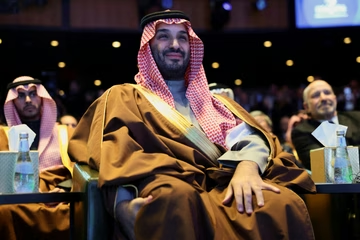
Elected officials are responsible for the timely formation of the government in order to ensure stability, the US Embassy said on Monday in response to a statement made by the leader of a Bosnian Croat party who conditioned the formation of the government with changes in the election law.
‘Vecernji List’ on Monday published an interview with the leader of the main Bosnian Croat political party in the country, the Croat Democratic Union (HDZ), Dragan Covic, who said that changing the “Election Law is the absolute condition for the formation of the government.”
“Although it is necessary to solve the problems the Election Law of Bosnia and Herzegovina contains, keeping the future of this country hostage in order to achieve political interests is irresponsible and unfair toward the citizens, including Croats in Bosnia,” the US Embassy told the Patria news agency.
“Instead, political parties should work within the established political framework to further their goals in a spirit of compromise,” the Embassy said.
Covic made the statement after a meeting with top officials of his party, where he touched upon the election of Zeljko Komsic to the post of the Croat member of Bosnia’s tripartite presidency.
Bosnia’s presidency is composed of three members, each representing one of the three majority ethnic groups living in the country - Bosniaks, Croats and Serbs.
The country is also composed of two semi-autonomous entities, the Bosnian Serb-majority Republika Srpska (RS) and the Federation (FBiH), shared by Croats and Bosniaks.
While the Serb Presidency member is elected from the RS, the Bosniak and Croat members are elected from the FBiH.
However, since there are many more Bosniaks than Croats in the Federation, Croat nationalist parties have been complaining that Bosniaks are able to elect the Bosnian Croat Presidency member. They said that this has already happened twice before and that it happened again in the General Election on Sunday, when Komsic won.
Komsic is, according to the HDZ, not a legitimate representative of Bosnian Croats. At the HDZ meeting on Monday, Covic said that never again will one ethnic group elect the representatives of another one at any government level.
The HDZ and their leader are demanding changes to the Election Law that would prevent this, but civic-oriented and Bosniak parties oppose this, saying it is discriminatory and that everybody should be able to vote for everybody.
The Election Law was declared unconstitutional by the Constitutional Court in 2016, but top parties in Bosnia never managed to find a compromise on how to change it. The international community tried to mediate talks between political representatives in the country throughout the past year, but to no avail, the US Embassy said.
“Still it is of key importance for partners in Bosnia and Herzegovina to find a solution in accordance with European and democratic norms which ensure political equality of the three constituent peoples in Bosnia and Herzegovina and the equality of all citizens, including those who do not identify as members of a constituent group,” the Embassy said.
Following the Embassy’s statement, the Office of the High Representatives, which oversees the civilian implementation of the Dayton Peace Agreement which ended the war in Bosnia, also commented on Covic’s statement.
"The compromise concerning the state Election Law could have been made but there was no political will to find a serious solution. It's up to Bosnian institutions to find a way to form the new government in the shortest possible time. No political party should block the implementation of election results," the OHR said.
Kakvo je tvoje mišljenje o ovome?
Učestvuj u diskusiji ili pročitaj komentare





 Srbija
Srbija
 Hrvatska
Hrvatska
 Slovenija
Slovenija



























































